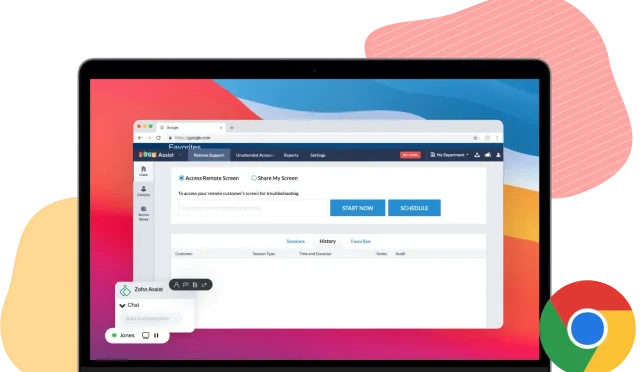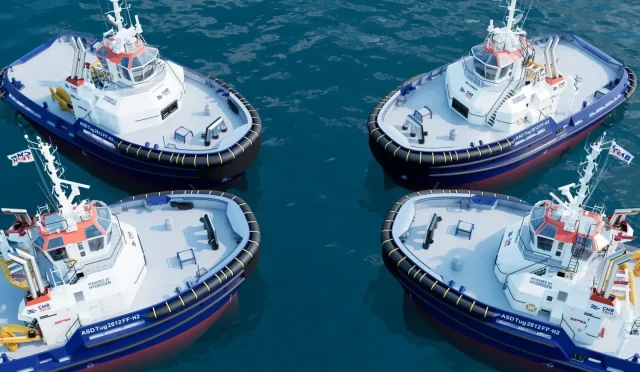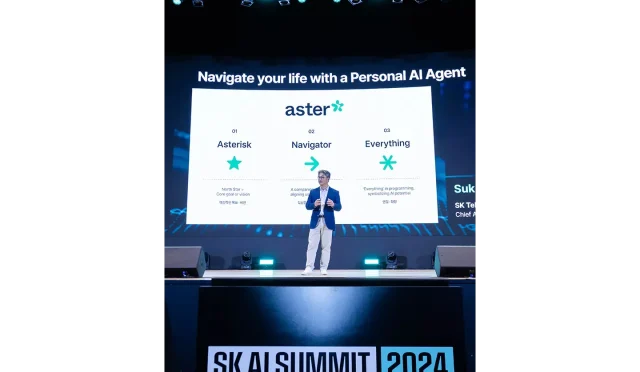System Design Interview Expectations by Level Explained
Navigating the system design interview expectations can be a daunting task for many candidates aiming for engineering roles. Unlike typical coding challenges, this interview format emphasizes a candidate’s ability to conceptualize and articulate complex systems, reflecting their understanding of design principles and architecture. Recruiters often use system design interviews to assess senior engineer expectations, distinguishing between various skill levels—from interns to senior and staff engineers. As you prepare, it’s essential to understand that success in these interviews hinges not only on technical skills but also on effective communication and problem-solving abilities. This comprehensive evaluation serves as a key factor in the interview process, shaping candidates’ prospects and career trajectories.
When entering the realm of technical interviews, particularly those focused on system architecture, grasping the core expectations is vital. These evaluations, often referred to as system architecture assessments or systems engineering interviews, challenge candidates to demonstrate their capacity to design scalable, efficient solutions. From entry-level interns to seasoned senior engineers, the criteria shift significantly, guiding interviewers in gauging a candidate’s problem-solving and design expertise. Understanding the diverse roles and their respective requirements helps aspiring engineers refine their skills and meet the expectations that come with each level in the interview hierarchy. As the landscape of engineering interviews evolves, being prepared for system design assessments becomes a crucial element of the journey.
Understanding System Design Interview Expectations
In the realm of engineering interviews, the system design interview holds a pivotal role, especially in determining a candidate’s fit for various levels within an organization. Expectations vary significantly from interns to senior engineers, reflecting an individual’s growth and understanding of complex systems. For instance, while an intern’s primary focus is on grasping basic design principles, a senior engineer is expected to demonstrate independent thinking and a comprehensive grasp of system architecture. This delineation is crucial for both applicants and hiring managers to ensure alignment in roles and expectations.
During the system design interview, candidates are evaluated not only on their technical knowledge but also on their ability to communicate effectively and adapt their thought processes based on feedback. This is particularly important at the senior level, where interviewing parties expect candidates to articulate their designs clearly, justify their decisions, and anticipate possible challenges that may arise. This interview process highlights the importance of system design skills in engineering roles, making it essential for candidates to prepare thoroughly by understanding their expected contributions at each level.
Roles and Expectations Across Different Levels
Every level in the system design interview process has specific expectations that correlate with a candidate’s experience and competency. For interns, the expectation is minimal; they are generally required to show eagerness to learn, communicate their ideas, and demonstrate a basic understanding of technical concepts like APIs and databases. As candidates progress to the junior (E3) level, they are expected to identify key components of the system and ask insightful questions that demonstrate their problem-solving abilities. This transitional expectation sets the stage for a more nuanced understanding of system design as candidates advance in their careers.
At the mid-level (E4), candidates are expected to take ownership of the system design process and to outline potential approaches, even if they still need guidance. They should demonstrate an awareness of various design patterns and be able to apply them in context. Moving up to senior (E5) and staff (E6) levels, the complexity and depth of expectations increase significantly. Senior engineers must navigate discussions with minimal guidance and address both functional and non-functional requirements, while staff engineers are tasked with tackling the most challenging design problems and considering long-term implications. This escalation in expectations reflects a deeper understanding and mastery of system design principles and practices.
The Importance of Communication in Design Interviews
In the system design interview, effective communication is paramount across all levels. For interns and junior engineers, it serves as the foundation for understanding the problem scope, and for engaging the interviewers in meaningful dialogue. As candidates progress, the expectation shifts towards proactively communicating ideas, which becomes critical when discussing complex system components and their interactions. Senior engineers, in particular, are often evaluated based on their ability to articulate designs clearly, assess trade-offs, and present alternatives, making strong communication skills a crucial asset for success.
Additionally, at higher levels such as E5 and E6, candidates are expected to guide the conversation and help interviewers understand their thought processes. This ability to communicate not just ‘what’ they are designing but also ‘why’ they are choosing specific approaches allows higher-level engineers to demonstrate their expertise in system design effectively. Clear communication regarding potential bottlenecks, trade-offs, and user impact showcases a candidate’s depth of understanding, which is essential for roles that require a strategic and holistic view of system architecture.
Navigating Ambiguity in System Design
Ambiguity is an inherent part of the system design interview process. Candidates are often presented with high-level challenges that require them to identify key requirements and make design choices with limited information. At the intern and junior levels, the expectation is to show a willingness to engage with the ambiguity by asking clarifying questions and breaking problems down into manageable pieces. This foundational skill of navigating ambiguity becomes increasingly vital as candidates transition to mid-level and senior engineering positions, where they are expected to propose solutions even when faced with unclear or conflicting requirements.
At senior and staff levels, candidates are evaluated not only on their ability to navigate ambiguity but also on how effectively they can prioritize and address core components of a system design. They must demonstrate a capacity for structured thinking to simplify complex problems, enabling them to outline potential solutions while considering the implications of their designs. The ability to articulate thought processes and decision-making logic becomes a critical differentiator at these levels, showcasing the candidates’ ability to handle real-world complexities in system architecture.
Key Components of System Design at Each Level
Understanding the essential components of system design is crucial for success across different engineering levels. At the intern level, candidates need only grasp basic functionalities such as how APIs interact with databases. In contrast, as candidates progress to junior and mid-level positions, they are expected to integrate multiple components such as CRUD operations, databases, and additional services like load balancers or message queues. This increasing complexity signifies a growing understanding of how different parts of a system work together to create an efficient solution.
For senior and staff engineers, the system design expectations require a comprehensive understanding of not only individual components but also how they contribute to the overall system’s architecture. Candidates at these levels must be proficient in discussing more intricate elements like database contention, concurrency, and long-term operational implications. Their ability to weave together a coherent design that considers both immediate functionality and future scalability is what sets them apart in the engineering interview process.
Responding to Design Challenges and Trade-offs
Throughout the system design interview, candidates will often be faced with various design challenges that require them to think critically about trade-offs between different system components. At lower levels, candidates are expected to show an understanding of basic trade-offs, such as the choice between speed and reliability when designing an API. As they advance to mid- and senior levels, candidates are required to not only identify these trade-offs but also justify their design decisions based on specific requirements and user needs.
For staff-level candidates, balancing trade-offs becomes even more complex, as they must navigate large-scale architectural choices that impact multiple facets of the system. This includes considerations of budget constraints, user experience, and future scalability. Their responsibility lies in analyzing these trade-offs thoroughly and presenting their findings in a structured format. Effectively demonstrating this capability is essential for success, as it highlights a candidate’s depth of knowledge and their ability to tackle high-stakes system design problems.
Preparing for System Design Interviews Across Levels
Preparation is key for candidates aiming to excel in system design interviews, particularly because the expectations change with seniority. For interns and junior candidates, practice often involves understanding basic system functionalities and being able to articulate their thought processes clearly during mock interviews. Engaging in discussions about different system elements and their interactions will foster confidence and enhance their ability to communicate effectively during the interview.
As candidates move to senior and staff levels, preparation must include not only mastering various system design patterns but also familiarizing oneself with common interview prompts and case studies relevant to their target roles. Participating in peer discussions, designing systems on a whiteboard, and receiving feedback can help refine their approach. Moreover, crafting responses that showcase their problem-solving capabilities and trade-off analysis will be invaluable, ensuring they meet the expectations for independent thinking and leadership in system design interviews.
Evaluating Success in System Design Interviews
Success in system design interviews is often determined by how well candidates meet the specific expectations associated with their target level. For instance, while passing the interview is essential for interns and junior engineers, demonstrating structured thinking and the ability to articulate ideas may play a more significant role. At mid-level, candidates are evaluated on their capacity to align design choices with user needs and break down problems, which could influence the final hiring decision regardless of technical shortcomings.
At the senior and staff levels, the stakes are elevated significantly. Candidates need to showcase their competence in system design through their ability to lead discussions, make informed design choices, and analyze potential risks. Poor performance in this area could lead to being down-leveled, making it crucial for candidates to prepare thoroughly. Evaluating their ability to communicate effectively, balance competing requirements, and tackle ambiguity will ultimately dictate their success in securing a desirable position.
Frequently Asked Questions
What can I expect in a system design interview at the intern level?
In a system design interview for interns, expectations are minimal. Candidates are primarily assessed on their ability to communicate and listen carefully to the interviewer. The design should demonstrate basic understanding of APIs and databases, focusing on learning rather than comprehensive solutions.
What are the expectations for junior engineers in system design interviews?
Junior engineers, or E3 level candidates, are expected to identify and implement core components of a system in a system design interview. They should show initiative in asking clarifying questions and be able to balance design simplicity with necessary functionalities, although they may not fully connect all system components independently.
How should mid-level engineers approach system design interviews?
Mid-level engineers (E4) are expected to create a basic architectural plan that connects key system elements. They should demonstrate ownership of the design process, outline various approaches, and learn common patterns to apply across different problems. They commonly need guidance to focus on critical details.
What do senior engineers need to demonstrate in system design interviews?
Senior engineers (E5) are expected to lead the design discussion with minimal input from the interviewer. They should provide comprehensive designs covering all essential components, analyze trade-offs, and justify their choices clearly. The ability to handle complex prompts with confidence is crucial for this level.
What differentiates a staff engineer in a system design interview from a senior engineer?
Staff engineers (E6) tackle the most ambiguous problems with minimal guidance, driving discussions from requirements gathering to long-term considerations. They need to proactively address trade-offs, potential bottlenecks, and layout detailed designs demonstrating their deep understanding of system needs. This role demands higher expectations than senior engineers.
Why is the system design interview critical for higher-level engineering roles?
The system design interview is critical for senior and staff-level candidates as it can influence their hiring outcome significantly. Approximately 60-65% of candidates at these levels fail loops due to inadequate performance in system design, highlighting its importance in assessing a candidate’s strategic thinking and technical depth.
How can candidates prepare for system design interviews?
Candidates can prepare for system design interviews by studying design patterns, practicing with sample questions, and understanding the functionalities of various system components such as microservices, databases, and APIs. Reviewing trade-offs, reliability, and scalability issues will also enhance their performance in the assessments.
What role does communication play in system design interviews?
Effective communication is essential in system design interviews across all levels. Candidates must express their thought processes clearly, ask relevant questions, and align their design thoughts with interviewer feedback, especially at junior and mid-levels, where guidance is often required.
| Level | Scope | Communication Importance for the Offer Decision |
|---|---|---|
| Intern | A class, or a few classes within one component along with a small collection of APIs. | Not expected to lead the interview. If a system design interview occurs at this level, it is unlikely to be the deciding factor, but demonstrating structured thinking will nevertheless weigh into the decision. |
| Junior (E3) | A few CRUD APIs, one database, and a few other supplementary components. | Not expected to lead the interview; expected to ask questions to clarify the problem. Similar expectations to the intern. |
| Mid Level (E4) | A collection of microservices, databases, servers, and supplementary components (load balancers, message queues, CDNs, DNS, etc.) | Expected to break down somewhat ambiguous problems into clear requirements and align with the interviewer with some hints. Somewhat important; a production-ready, realistic design is not necessary. It is possible (though not likely) to secure an offer even if the system design round has a ‘no-hire’ vote. |
| Senior (E5) | Internal implementation of commonly used components. Questions require understanding of lower-level components as well as consistent hashing, database contention, quorums, and OS-level concepts such as concurrency and multi-threading. | Expected to navigate the conversation with minimal input. Capable of breaking down ‘tough prompts’ such as ‘Design Instagram’ or ‘Design Uber’ into clear functional and non-functional requirements. The candidate is expected to lead the discussion and identify potential risks and bottlenecks with minimal guidance. Important. Most companies will have one or more system design rounds for Senior engineers. Performance in the system design round may often lead to downleveling rather than outright rejection. |
| Staff (E6) | Similar scope to senior level, with greater depth given to specific components, much less handwaving applied, and broader ability to execute on edge cases such as analytics, observability, geo-distribution, and more. | Expected to tackle the hardest and most ambiguous product and infrastructure problems with minimal input from the interviewer. The candidate should be able to proactively identify all requirements and assign them corresponding priorities. The candidate navigates the interview while concentrating on the most crucial components of the system, proactively listing all potential limitations. Critical. Staff engineers are primarily evaluated during behavioral and system design rounds and would likely have two system design rounds in the loop. It is nearly impossible to secure a staff-level offer without demonstrating the ability to prototype a highly scalable system during a system design interview. |
Summary
System design interview expectations vary significantly by candidate level, and understanding these expectations is crucial for success in the interview process. At the intern level, candidates are not expected to take charge but should demonstrate basic understanding and follow instructions. Junior engineers are anticipated to ask clarifying questions but still have limited scope. Mid-level engineers must break down ambiguous problems, whereas senior engineers need to lead discussions with in-depth knowledge. Staff engineers are expected to tackle complex issues independently and demonstrate a comprehensive approach to system design. Therefore, candidates should thoroughly prepare for their respective levels to meet the specific expectations outlined in these interviews.







